Scientists from Russia and Korea plan to clone a prehistoric horse
Categories: Animals | Science | World
By Pictolic https://pictolic.com/article/scientists-from-russia-and-korea-plan-to-clone-a-prehistoric-horse.htmlDuring excavations in Yakutia last summer, the remains of a 42,000-year-old foal were discovered. From the remains preserved in permafrost, scientists managed to extract a sample of liquid blood preserved due to the low temperature.
The foal belonged to the now extinct species of Lena horses, and scientists believe that they may be able to clone it, thereby restoring its prehistoric appearance. This would be the first step in restoring the biological diversity of the planet and the possible cloning of mammoths in the future.
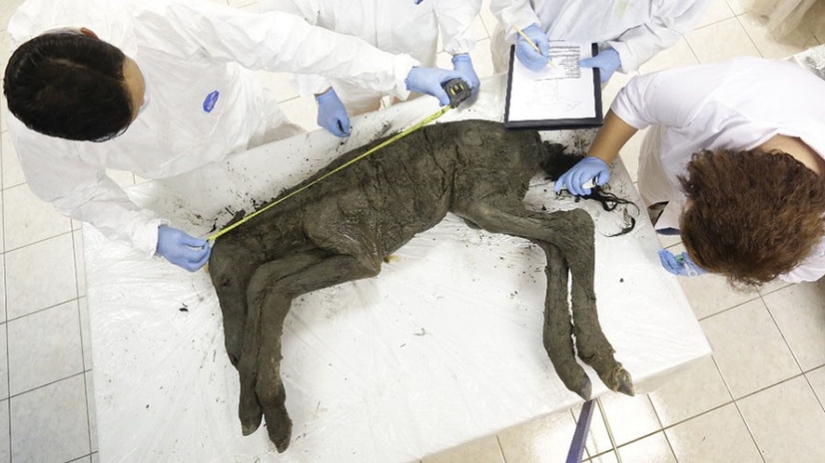
The research team of Russia and South Korea expressed confidence that they will be able to recreate an extinct horse species. This will be possible by cloning using the DNA of the remains of a foal that died 42 thousand years ago.
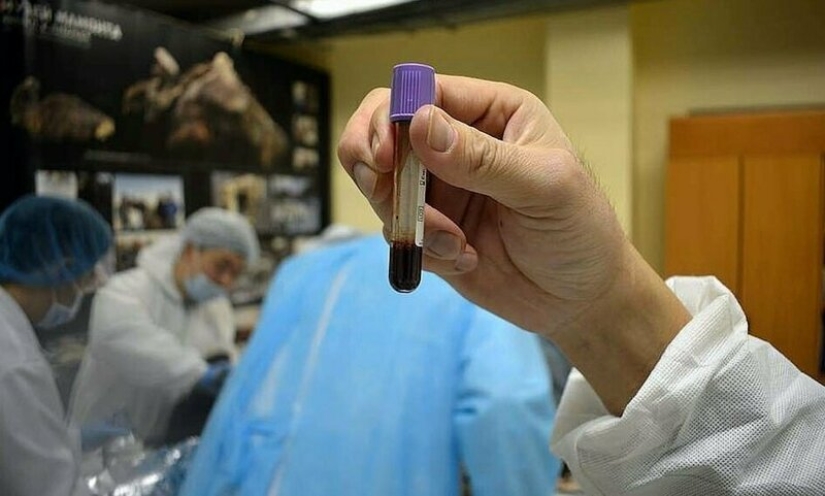 This blood sample is 42,000 years old. Scientists found it in the remains of a foal found during excavations in the Siberian permafrost.
This blood sample is 42,000 years old. Scientists found it in the remains of a foal found during excavations in the Siberian permafrost.
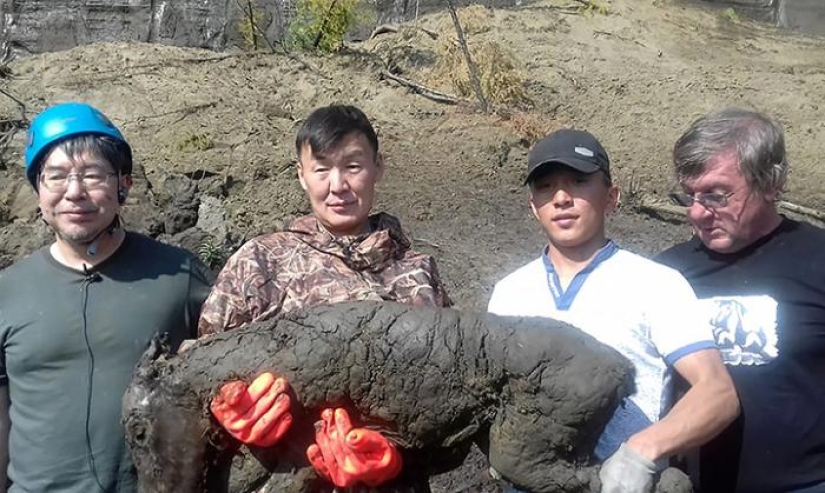 The foal was discovered in the Siberian Batagaika crater in the Sakha Republic, which locals call the "gateway to the underworld." The crater is a depression 100 meters deep, formed as a result of the melting of permafrost.
The foal was discovered in the Siberian Batagaika crater in the Sakha Republic, which locals call the "gateway to the underworld." The crater is a depression 100 meters deep, formed as a result of the melting of permafrost.
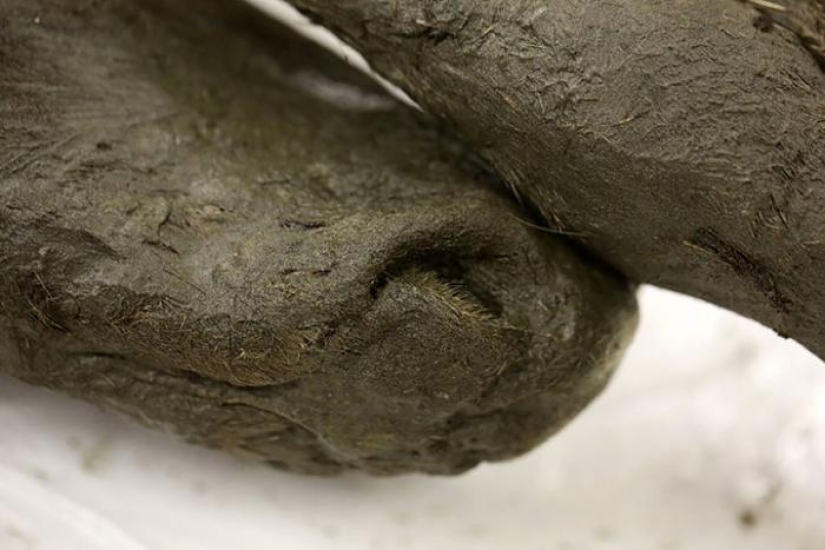 Despite the solid age of the remains, scientists were able to determine the age of the foal and even the cause of its death. According to them, he drowned at the age of about two weeks.
Despite the solid age of the remains, scientists were able to determine the age of the foal and even the cause of its death. According to them, he drowned at the age of about two weeks.
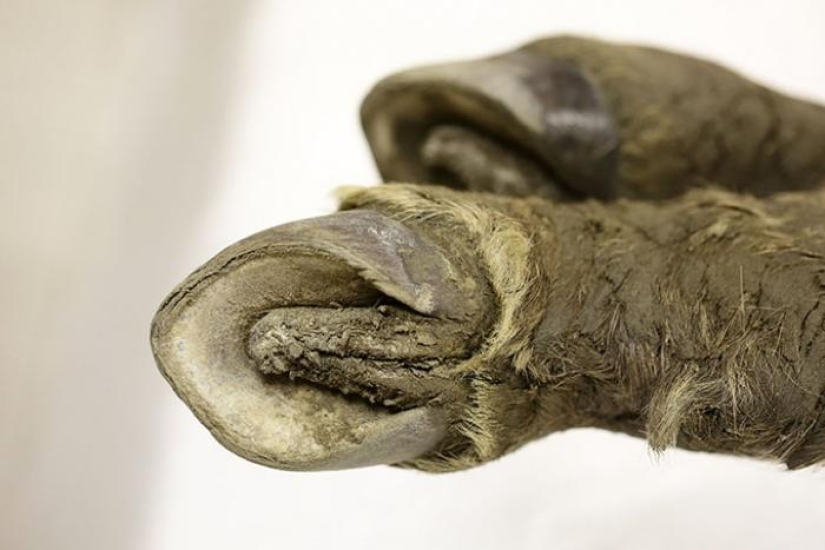 The animal's body remained virtually untouched. Experts say that this is the world's first find of a mummified prehistoric foal in such good condition — the coat, mane, tail, and internal organs remained practically intact.
The animal's body remained virtually untouched. Experts say that this is the world's first find of a mummified prehistoric foal in such good condition — the coat, mane, tail, and internal organs remained practically intact.
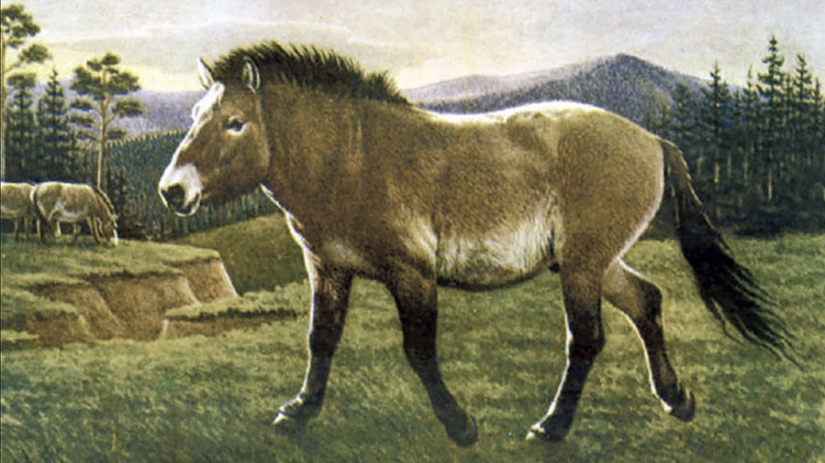 Lena horse
Lena horse
Russian and Korean scientists have been studying the remains of a foal for several months. Now scientists are trying to find viable cells suitable for cloning. The work is being carried out at the North-Eastern Federal University in Yakutsk.
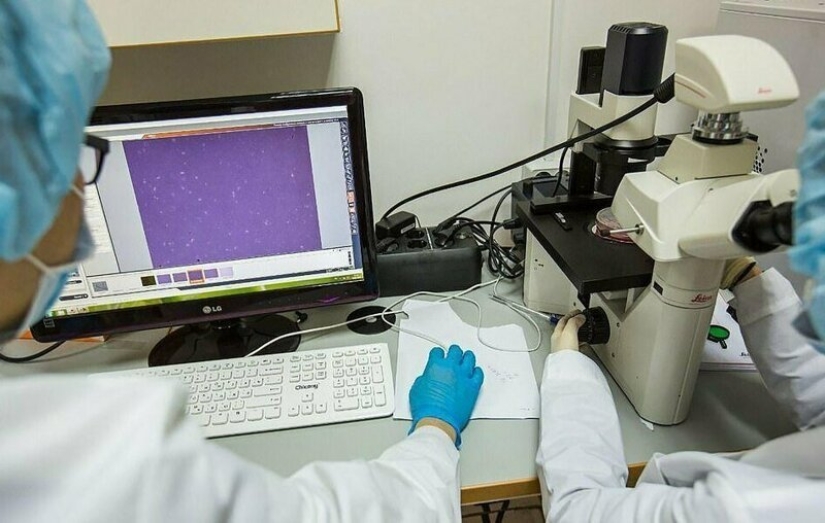

Meanwhile, a number of experts doubt that such a transplant is possible at all, since the degree of preservation of genetic material, even in permafrost, is low.

Keywords: Cloning | Horses | Scientists | South korea | Yakutia
Post News ArticleRecent articles

It's high time to admit that this whole hipster idea has gone too far. The concept has become so popular that even restaurants have ...

There is a perception that people only use 10% of their brain potential. But the heroes of our review, apparently, found a way to ...
Related articles

Have you heard of such a phenomenon as the doorway effect? Let's put it simply: have you ever walked into a room and immediately ...

Most of us think that the color of the eggshell does not play any role and it is possible not to pay attention. But it's not and ...

"Wash your hands before eating!" — a phrase familiar to us since childhood. The parents explained that with the help of this ...

New Year's is a time to surprise and delight loved ones not only with gifts but also with a unique presentation of the holiday ...